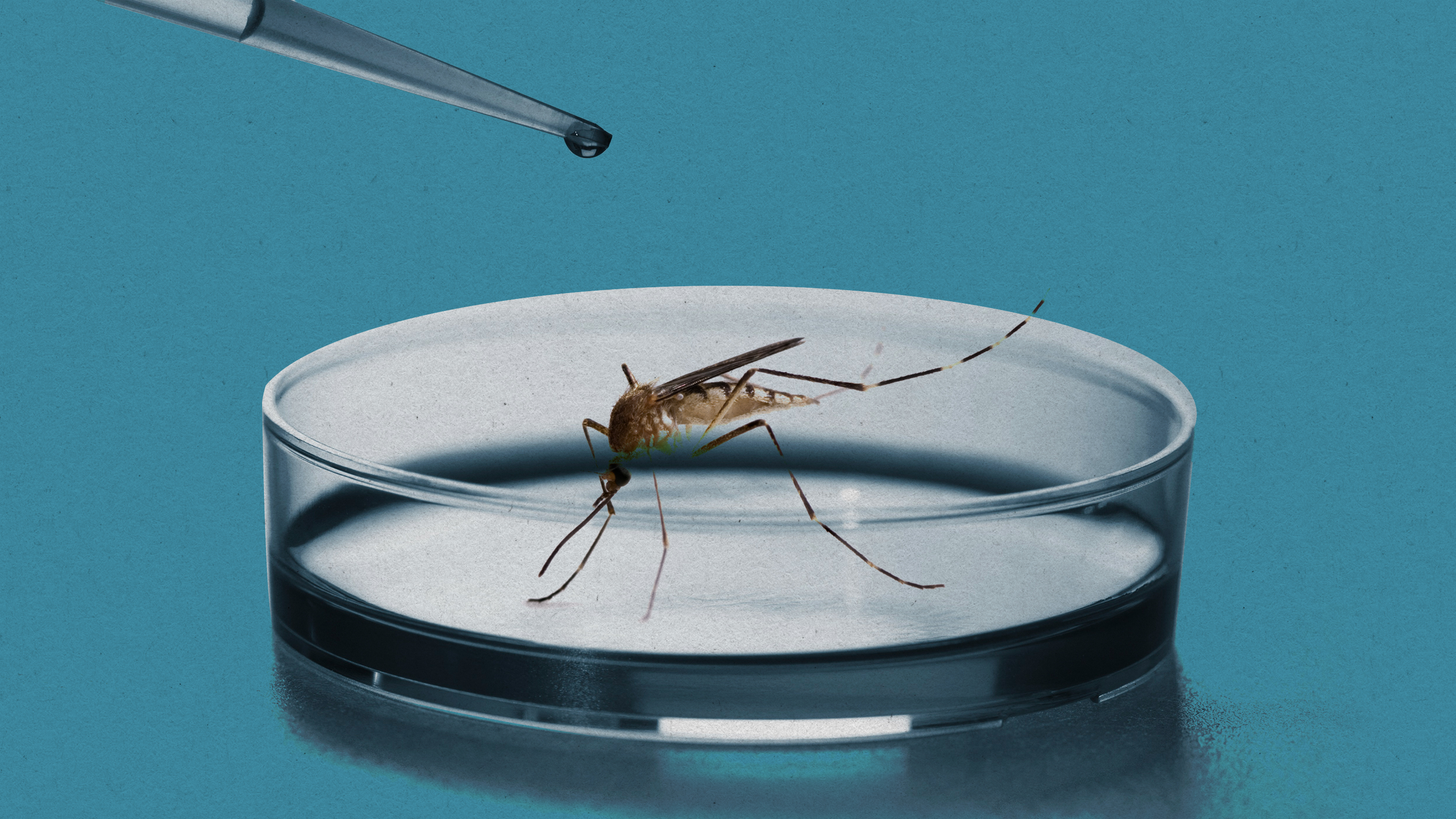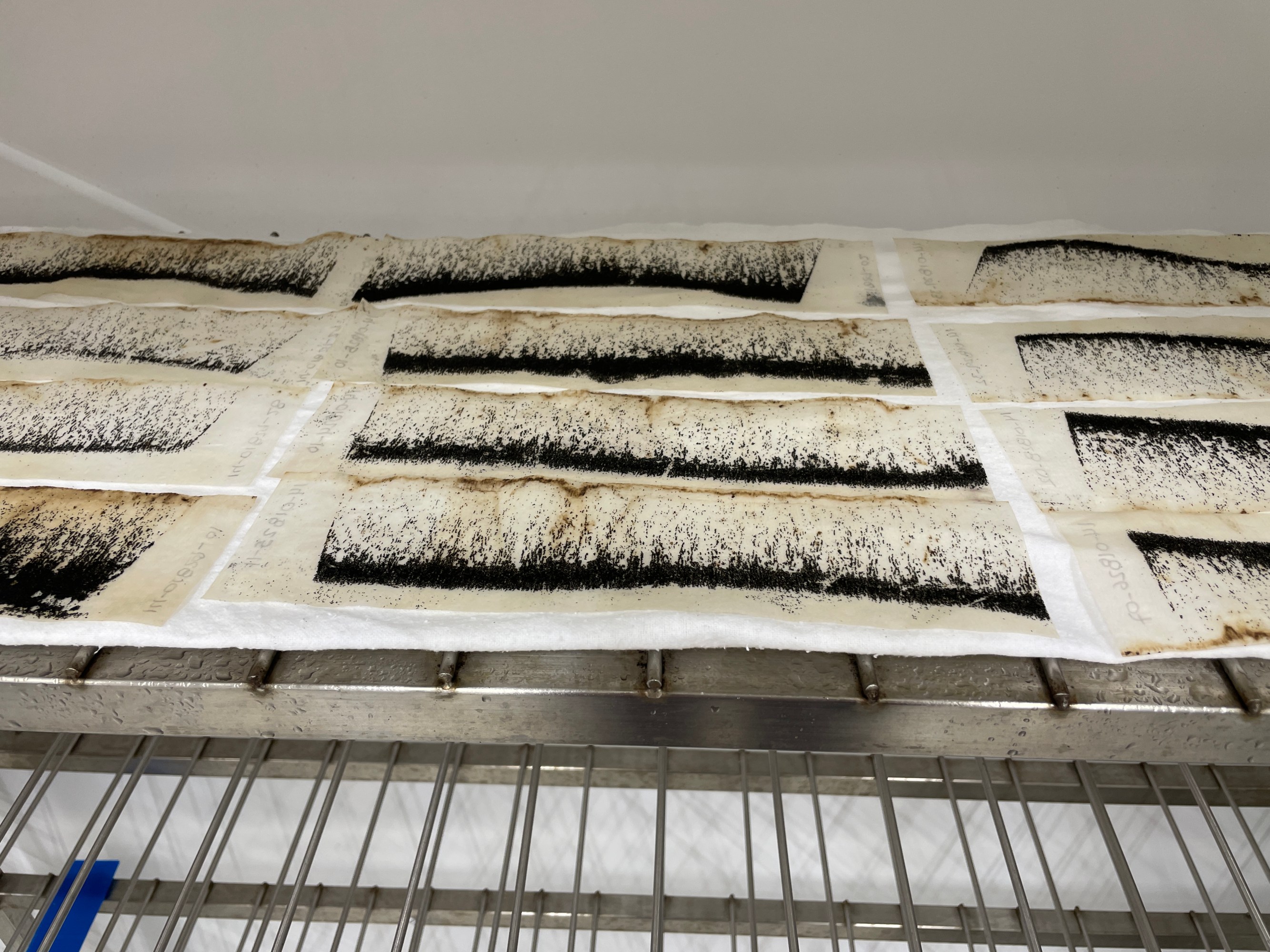Brazil is fighting dengue with bacteria-infected mosquitos
Mass deployment of infected mosquitoes in some regions can curb dengue even amidst a national surge

This article first appeared in The Checkup, MIT Technology Review's weekly biotech newsletter. To receive it in your inbox every Thursday, and read articles like this first, sign up here.
As dengue cases continue to rise in Brazil, the country is facing a massive public health crisis. The viral disease, spread by mosquitoes, has sickened more than a million Brazilians in 2024 alone, overwhelming hospitals.
The dengue crisis is the result of the collision of two key factors. This year has brought an abundance of wet, warm weather, boosting populations of Aedes aegypti, the mosquitoes that spread dengue. It also happens to be a year when all four types of dengue virus are circulating. Few people have built up immunity against them all.
Brazil is busy fighting back. One of the country’s anti-dengue strategies aims to hamper the mosquitoes’ ability to spread disease by infecting the insects with a common bacteria—Wolbachia. The bacteria seems to boost the mosquitoes’ immune response, making it more difficult for dengue and other viruses to grow inside the insects. It also directly competes with viruses for crucial molecules they need to replicate.
The World Mosquito Program breeds mosquitoes infected with Wolbachia in insectaries and releases them into communities. There they breed with wild mosquitoes. Wild females that mate with Wolbachia-infected males produce eggs that don’t hatch. Wolbachia-infected females produce offspring that are also infected. Over time, the bacteria spread throughout the population. Last year I visited the program’s largest insectary—a building in Medellín, Colombia, buzzing with thousands of mosquitoes in netted enclosures— with a group of journalists. “We're essentially vaccinating mosquitoes against giving humans disease,” said Bryan Callahan, who was director of public affairs at the time.

The World Mosquito Program first began releasing Wolbachia mosquitoes in Brazil in 2014. The insects now cover an area with a population of more than 3 million across five municipalities: Rio de Janeiro, Niterói, Belo Horizonte, Campo Grande, and Petrolina.
In Niterói, a community of about 500,000 that lies on the coast just across a large bay from Rio de Janeiro, the first small pilot releases began in 2015, and in 2017 the World Mosquito Program began larger deployments. By 2020, Wolbachia had infiltrated the population. Prevalence of the bacteria ranged from 80% in some parts of the city to 40% in others. Researchers compared the prevalence of viral illnesses in areas where mosquitoes had been released with a small control zone where they hadn’t released any mosquitoes. Dengue cases declined by 69%. Areas with Wolbachia mosquitoes also experienced a 56% drop in chikungunya and a 37% reduction in Zika.
How is Niterói faring during the current surge? It’s early days. But the data we have so far are encouraging. The incidence of dengue is one of the lowest in the state, with 69 confirmed cases per 100,000 people. Rio de Janeiro, a city of nearly 7 million, has had more than 42,000 cases, an incidence of 700 per 100,000.
“Niterói is the first Brazilian city we have fully protected with our Wolbachia method,” says Alex Jackson, global editorial and media relations manager for the World Mosquito Program. “The whole city is covered by Wolbachia mosquitoes, which is why the dengue cases are dropping significantly.”
The program hopes to release Wolbachia mosquitoes in six more cities this summer. But Brazil has more than 5,000 municipalities. To make a dent in the overall incidence in Brazil, the program will have to release millions more mosquitoes. And that’s the plan.
The World Mosquito Program is about to start construction on a mass rearing facility—the biggest in the world—in Curitiba. “And we believe that will allow us to essentially cover most of urban Brazil within the next 10 years,” Callahan says.
There are also other mosquito-based approaches in the works. The UK company Oxitec has been providing genetically modified “friendly” mosquito eggs to Indaiatuba, Brazil, since 2018. The insects that hatch—all males—don’t bite. And when they mate, their female offspring don’t survive, reducing populations.
Another company, Forrest Brasil Tecnologia, has been releasing sterile male mosquitoes in parts of Ortigueira. When these males mate with wild females, they produce eggs that don’t hatch. From November 2020 to July 2022, the company recorded a 98.7% decline in the Ades aegypti population in Ortigueira.
Brazil is also working on efforts to provide its citizens with greater immunity, vaccinating the most vulnerable with a new shot from Japan and working on its own home-grown dengue vaccine.
None of these solutions are a quick fix. But they all provide some hope that the world can find ways to fight back even as climate change drives dengue and other infections to new peaks and into new territories. ““Cases of dengue fever are rising at an alarming rate,” Gabriela Paz-Bailey, who specializes in dengue at the US Centers for Disease Control and Prevention, told the Washington Post. “It’s becoming a public health crisis and coming to places that have never had it before.”
Now read the rest of The Checkup
Read more from MIT Technology Review’s archive
We’ve written about the World Mosquito Program before. Here’s a 2016 story from Antonio Regalado that looked at early excitement and Bill Gates’ backing of the project.
That same year we reported on Oxitec’s early work in Brazil using genetically modified mosquitoes. Flavio Devienne Ferreira has the story.
And this story from Emily Mullin looks at Google’s sister company, Verily. It built a robot to create Wolbachia-infected mosquitoes and began releasing them in California in 2017. (The project is now called Debug).
From around the web
The FDA-approved ALS drug Relyvrio has failed to benefit patients in a large clinical trial. It was approved early amidst questions about its efficacy, and now the medicine’s manufacturer has to decide whether to pull it off the market. (NYT)
Wegovy: it’s not just for weight loss anymore. The FDA has approved a label expansion that will allow Novo Nordisk to market the drug for its heart benefits, which might prompt more insurers to cover it. (CNN)
Covid killed off one strain of the flu and experts suggest dropping it from the next flu vaccine. (Live Science)
Scientists have published the first study linking microplastic pollution to human disease. The research shows that people with plastic in their artery tissues were twice as likely to have a heart attack, stroke, or die than people without plastic. (CNN)
Deep Dive
Biotechnology and health
This baby with a head camera helped teach an AI how kids learn language
A neural network trained on the experiences of a single young child managed to learn one of the core components of language: how to match words to the objects they represent.
The next generation of mRNA vaccines is on its way
Adding a photocopier gene to mRNA vaccines could make them last longer and curb side effects.
An AI-driven “factory of drugs” claims to have hit a big milestone
Insilico is part of a wave of companies betting on AI as the "next amazing revolution" in biology
Ready, set, grow: These are the biotech plants you can buy now
For $73, I bought genetically modified tomato seeds and a glowing petunia.
Stay connected
Get the latest updates from
MIT Technology Review
Discover special offers, top stories, upcoming events, and more.